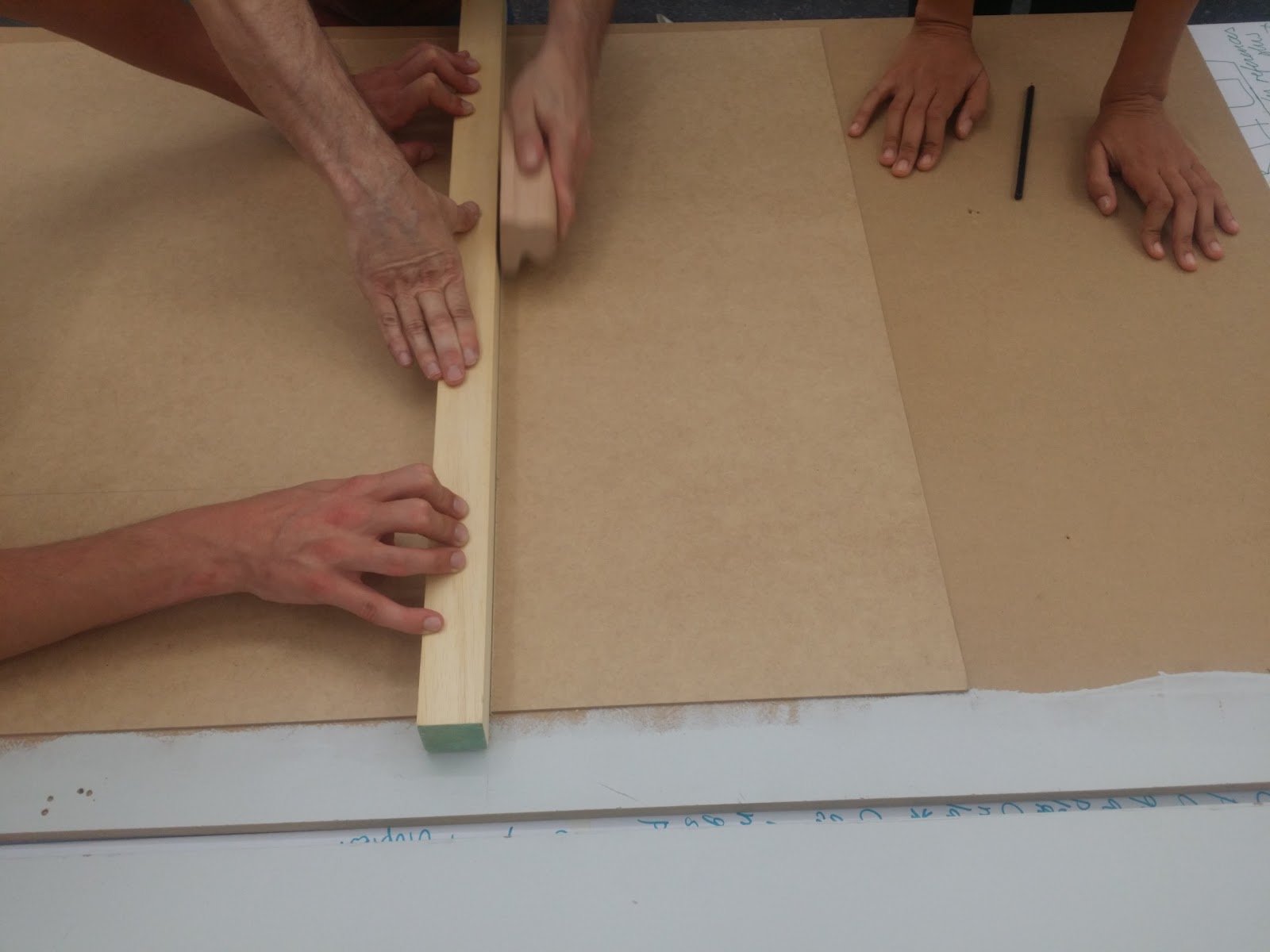“Qalqalah: Rethinking History” is the second workshop organized by Qalqalah قلقلة. The workshop, co-hosted by artist, researcher and performer Aline Benecke, takes as its starting point a fictional short story by the curator and researcher Sarah Rifky: its main character, Qalqalah, linguist living in 2048, wonders about the possible ways of thinking about history in a ceaseless round trip between languages, modes of storytelling and temporalities.
The workshop – which involves students and artists associated with the art schools of Montpellier, Nîmes and Toulouse and the ICI-CCN Exerce Master program of Montpellier forms a stage in the public reflection initiated by Virginie Bobin and Victorine Grataloup to collectively think about the forms and issues of Qalqalah قلقلة.

The workshop was notably deployed around the construction of a model imagined by Aline Benecke from a photograph of her family’s first “house” in France – in reality an internment camp for algerian refugees. It is at the same time a research, an investigation, an archiving, an artistic production and a performance. From this model, documentary images and shared texts, as well as the participants’ own stories, research materials and experiences, we experimented with possible practices of critical co-production of history. Starting from the principles of touch and reconstitution.
The workshop thus proposed to practice, like Qalqalah, to “reformulate our thoughts”, from one language to another, from one position to another, in order to embrace the speculative possibilities of history, poetry, performance and other forms of narrative (narrative, “post-narrative”, visual, material, sound, etc.). The model produced served as a support for a public performance by Aline Benecke, as an extension of the workshop.
With the participation of Nina Berclaz, Jennifer Conejero, Anaïs Hay, Vir Andres Hera, Daniel Lühmann, Michel Martin, Renata Pires and Marilina Prigent.
Bibliography of the workshop, proposed by Aline Benecke
Eve Tuck and Marcia McKenzie. Relational Validity and the “Where” of Inquiry: Place and Land in Qualitative Research. Qualitative Inquiry. 2015, Vol. 21
This text offers a critical perspective on the notion of “place” (place), which takes into account the customs, practices, apprehensions and attachments of different communities, by reintegrating them into colonial and postcolonial relationships. It does not necessarily describe a place linked to a specific architecture or geography: a place can be incorporated, taken with you or (re) created. The extract chosen offers different ways to reconsider the notion of place, from a critical approach to research (which we extend to artistic research).
Saunders, Patricia J. “Fugitive Dreams of Diaspora: Conversations with Saidiya Hartman,” Anthurium: A Caribbean Studies. Journal: Vol. 6 : 2008 Iss. 1 , Article 7.
The research of the Afro-feminist theoretician and activist Saidiya Hartman questions the way in which work around archives, particularly photographic ones, risks reproducing, by exposing it, the violence exerted on black and racialized bodies. In the short extract chosen (p.14), she tackles the question of the home, and the possibility, for diasporic communities, of recreating a home (echoing the notion of place discussed above).
Tuck, Eve and Yang, K.Wayne. 2014. “R-words: Refusing research.” In D. Paris & M. T. Winn, Humanizing research: Decolonizing qualitative inquiry with youth and communities, 223-248. Los Angeles, CA: Sage Publications.
Tuck and Yang criticize the way in which university research instrumentalizes the history and suffering of racialized, colonized or displaced communities to produce knowledge. He proposes to think of the issue of refusal (to testify, to ask questions, or to share certain knowledge with institutions) as a possible way of combating this form of violence. As the authors point out in the little memo offered at the end of the text, refusal is not necessarily a negative act, but opens the possibility of creating other relationships with people, communities, places and to knowledge. The notion of refusal also recalls Qalqalah’s refusal to tell his story in the short story by Sarah Rifky, which gives the workshop its title.